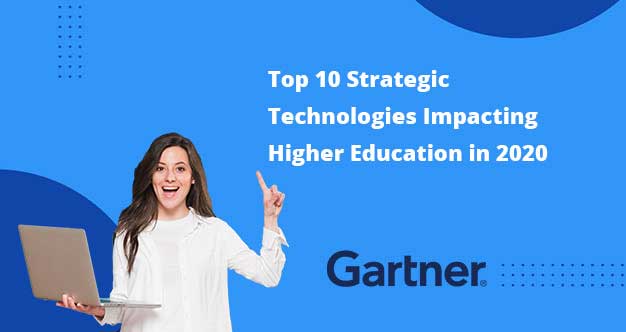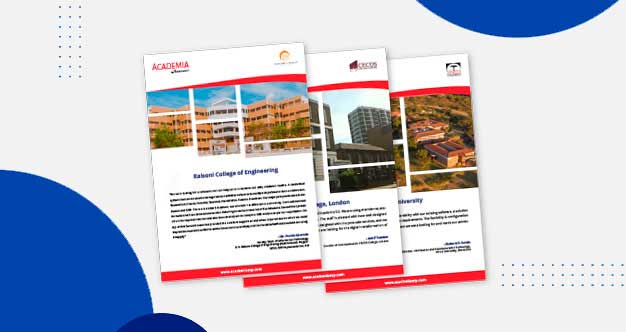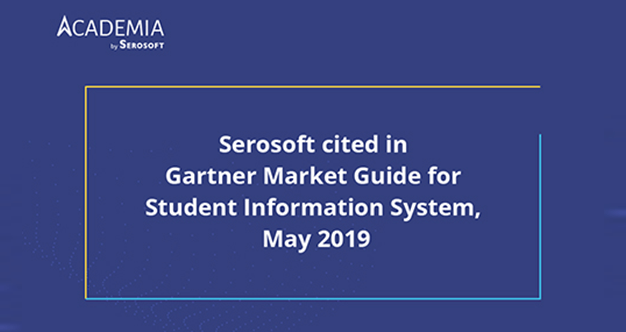Top 7 Features to Look for in a Modern Education ERP
Institutions Need to Understand This:
Our education system is built on the principle that students must first clear standardized exams and meet predefined criteria before gaining admission to any institution. Without qualifying, there’s no entry—fair enough, right?
But here’s the irony: while students are rigorously evaluated before admission, the software that manages an entire institution’s operations is often selected without any thorough examination.
Now think about this—implementing an ERP is not just another purchase. It’s a long-term, high-impact decision that reshapes your institution’s entire workflow. Choosing the wrong solution—without validating whether it truly meets your needs—can lead to chaos, inefficiency, and a lot of regret.
Not all educational ERPs or Student Information Systems are created equal. So, what truly makes an Education ERP result-oriented and future-ready?
That’s exactly what this blog will help you uncover. We’ve laid out the must-have features and decision-making tips that can save your institution from costly missteps.
Stick with us till the end—every point matters, and the right insight could change the way your campus operates.
1. Centralized Student Information
The backbone of any education ERP/Student Information System is its ability to centralize the entire data securely. A modern SIS doesn’t just store student records—it gives real-time access to academic performance, attendance, fee status, and more, all from a centralized dashboard.
Why it matters: Institutions can eliminate data silos and ensure all departments are working with the same up-to-date student data.
Explore how Academia’s SIS improves accuracy and accessibility.
2. Automation of Administrative Tasks
Manual data entry isn’t just time-consuming—it’s a breeding ground for errors. A modern ERP system eliminates this burden by automating a wide range of tasks.
From managing enquiries and processing admission forms to handling enrollments, configuring programs and courses, tracking fees, monitoring student performance, generating detailed reports, and beyond, it simplifies and streamlines the entire workflow, reducing the stress level of staff.
Why it matters: Automation improves efficiency, reduces workload on staff, and minimizes human errors, giving more time for strategic decisions.
For instance, an Indian university using automation via Academia reduced administrative processing time by 40% in just one semester.
3. Cloud-Based Accessibility
Gone are the days of on-premise servers and limited access. Today’s business landscape, with ever-increasing competition, requires institutions to keep their operations more agile, flexible, and accessible, reducing the response times during critical situations.
Modern ERPs are cloud-based, offering anytime-anywhere access for students, faculty, and admin staff, helping them make data-backed decisions always.
Why it matters: Cloud deployment ensures scalability, security, and ease of access—even during remote learning scenarios or global crises.
According to Educause, cloud adoption in higher education surged post-pandemic, with institutions reporting improved disaster recovery and system uptime.
4. Integrated Communication Tools
Whether it’s notifying students of exam schedules or updating parents on fee dues, communication is key. A good ERP integrates emails, SMS, in-app alerts, and even WhatsApp.
Why it matters: Timely, automated communication ensures everyone stays informed, without chasing individual stakeholders.
Moreover, communication logs allow institutions to track who was contacted and when, bringing transparency and accountability.
5. Advanced Reporting & Analytics
Data without insight is just noise. A modern ERP should provide customizable reports and real-time analytics for admissions, academic trends, attendance patterns, and more.
A robust Student Information System like Academia offers unmatched convenience through features designed for smarter, faster decision-making:
- Focus Mode – Provides a distraction-free view of reports, enabling users to gain a clearer and more focused understanding of institutional analytics.
- Drill-Down Functionality – Empowers users to dig deeper into data, right down to the micro level—be it by student, department, or course—for more precise and informed decision-making.
- Print & Export Facility – Allows seamless one-click export of report data into Excel format, simplifying documentation and sharing.
- Tabular View Conversion – Offers the ability to instantly convert complex data into a clean, structured table format, making it easier to analyze, present, or report.
Why it matters: Institutions can make informed, data-driven decisions—from optimizing course offerings to identifying at-risk students.
6. Seamless Admission & Enrollment Management
First impressions matter—and for educational institutions, the admission experience is often the first touchpoint. A modern Education ERP streamlines application tracking, document uploads, eligibility checks, and communication.
A comprehensive student database management system like Academia offers individual modules named Pre-Admission and Admission, ensuring convenient execution of every process under the respective modules.
Why it matters: An intuitive, mobile-friendly admission process improves student experience, maintains a detailed record of all the applications, and increases enrollment conversion rates.
Pro Tip: Look for ERPs that integrate with payment gateways, national admission portals, and CRMs for a seamless applicant journey.
7. Data Security & Compliance
With rising cyberattacks on educational data, institutions can no longer treat data security as optional. A modern ERP must have multi-layered security, role-based access controls, and strict adherence to compliance.
In terms of security and compliance adherence, Academia SIS tops the chart by ensuring strict adherence to industry regulations such as SOC2, GDPR, POPIA, and ISO.
Why it matters: Protecting student records isn’t just about ethics—it’s about institutional trust and regulatory compliance.
As per UNESCO, data privacy is now a top concern globally, especially in K-12 and higher education sectors.
Final Thoughts: Equip Your Institution for the Future
Choosing the right education ERP isn’t just an IT decision—it’s a strategic investment in your institution’s future.
Here’s what to remember:
- A modern ERP must be centralized, automated, cloud-based, and secure.
- It should improve communication, provide smart analytics, and deliver a seamless user experience for all stakeholders.
- Above all, it should adapt as your institution grows.
At Academia ERP, we’ve helped institutions across 20+ countries simplify operations, improve student outcomes, and embrace true digital transformation.
Book a demo or speak to an expert to see how Academia can help you build a smarter campus.
Related Posts:
 Higher Ed Plans
Higher Ed Plans K12 Plans
K12 Plans










